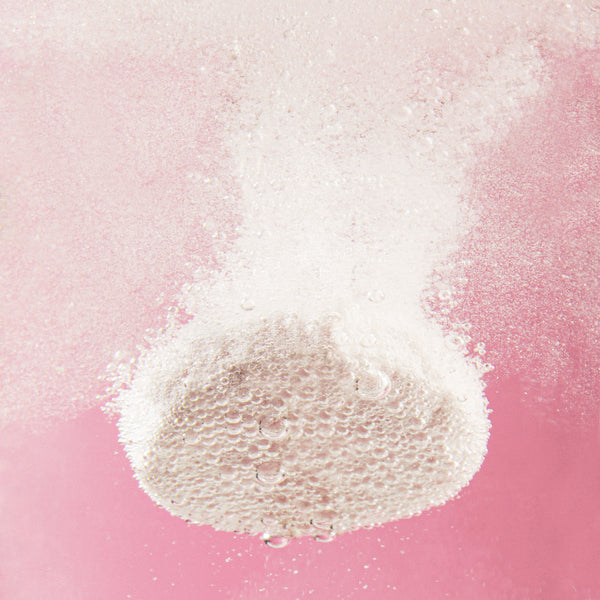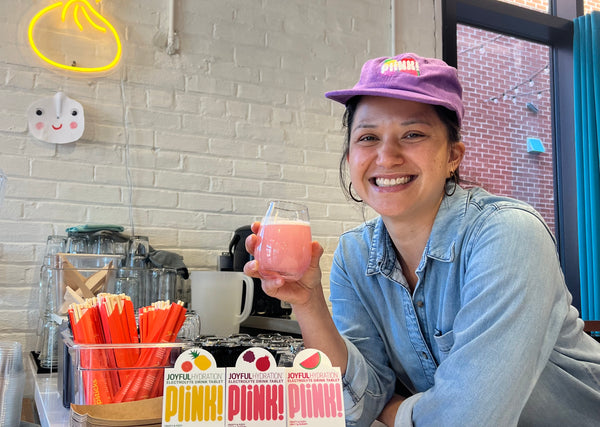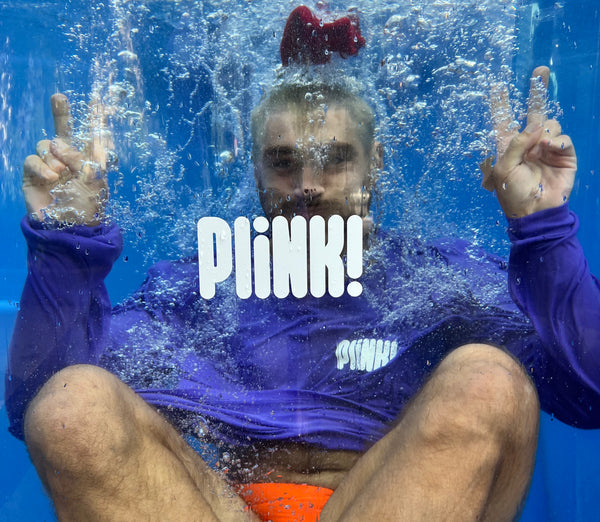PLINKERVIEW WITH GRACE CASTONGUAY

Grace Castonguay - Credit: Nordic Focus
We caught up with Grace Castonguay, a member of the the US biathlon team and a proud Plinklete! Below she dives into the unique sport of biathlon, her unexpected path to it, and her tips for staying focused under a whole lot of pressure.
Tell us where you are today and what brought you there?
My name is Grace Castonguay. I am 22 years old and a member of the US Biathlon Team. I am currently in Finland at the preseason selection camp in Finland for the IBU World Cup!
What brings you joy?
The continuous pursuit of self betterment. That brings me a lot of joy.
How do you explain Biathalon to someone who has never heard of it before?
Biathlon is that quirky sport that most people only watch when it comes on to the Olympic Channel every four years. Contrary to what most people assume when I first mention biathlon, it's not biking and swimming, or running and biking. Biathlon is the combination of Nordic skiing and marksmanship. It’s a fascinating sport, as it combines the heart-pumping, aerobic chaos of cross-country skiing with the concentration and stillness of precision marksmanship. It has long historical routes, first documented in prehistoric cave paintings, and later, playing a role in winter warfare in World War II.
Despite its lack of popularity in the U.S., biathlon is the number one most spectated winter sport in Europe. In a race, all athletes ski wearing our rifles on our back. Rifles all weigh a minimum of 8 pounds, which is regulation. While there are several different formats of competition, which all vary in distance and number of times we visit the shooting range, all races consist of skiing a loop, coming into the shooting range and shooting 5 targets 50 meters away. For each missed target, you then have to ski a 150 meter penalty lap.
We shoot from two positions: prone and standing. Prone shooting consists of laying on our stomach. From that position, we are aiming at targets the size of an Oreo. Standing, we aim at targets the size of a CD.
What drew you to the sport?
I have pretty long roots in endurance sports, starting out as a cross-country runner. That's what I wanted to do with my life. I wanted to go compete in college for it, but unfortunately long distance running and my body mechanics do not agree with each other. I got injured a lot.
I got a pretty late start to this sport. I picked up skiing when I was 17 years old, whereas most of my peers had been on skis since they were toddlers. I picked skiing kind of as a whim. My indoor track running season had finished early, and I was looking for something to help me stay in shape and maybe add to the college resume. My mom had started a Nordic ski team at my high school that solely consisted of my little brother, so he could compete in the high school race circuit, and she convinced me to stray on a pair of skis. I competed in my first race three weeks later, and looked like Bambi on ice skates. I remember crossing the finish line having had more fun competing in sport than I ever had before.
The shooting part came a little bit later. My younger brother is a biathlete. I would go to his races growing up, but had zero interest in the sport. I thought it was completely dumb to be honest. “Hell no. I have no interest in squeezing on a tight little spandex race suit in 20 degrees Fahrenheit”.
During my freshman year of college, I was completely online after Covid had hit. I followed my brother to Utah for some races in the fall of 2020. The former coach of Team Soldier Hollow saw me rollerskiing and asked if I wanted to hop into a biathlon practice for fun. I said “Sure, why not.” Something abut the way that coach taught me to shoot and explained the process of precision shooting really engaged me. I remember coming home after that practice thinking to myself:
“I like this. I want to be really good at this."
What are your personal goals for the season ahead?
I've already met one of them which was that I wanted to qualify for the first trimester of international racing whether that was IBU Cup or World Cup. Being in Finland at the pre-season selection camp has guaranteed that I will be on one of the two race circuits this trimester.
I would really love to get a World Cup start this season. We just had our team selection time-trial and it it was not a great race for me. However, I feel confident that once I can get my ski legs back underneath me and I'll get another opportunity to prove myself, I think a World Cup start is in the cards for me, which would be a really, really huge achievement at just 22 years old.
And then I also am finishing my senior year of Division I college skiing. I’m planning to head back to the US mid-winter for some college races and do my best to qualify for the NCAA Skiing Championships.
How do you maintain mental wellbeing while juggling your schedule of training, races, school and day-to-day regular life?
It can be difficult to balance my collegiate skiing goals with my biathlon goals. It's definitely a lot to juggle, and it's definitely a wacky lifestyle for someone my age, but there is no other way I'd rather have it.
I'm fortunate to have phenomenal coaches on both ends, both with the US team and with my college team. My collegiate coach understands that me going to this camp in Finland is not detracting from being a college racer, it's benefiting both sides. Being a college racer benefits me in the biathlon realm because collegiate racing in the US is extremely competitive, so I get lots of opportunities to get faster. When I pair collegiate skiing and international racing, I get many more race starts too. Last year, I got 34 race starts, compared to the standard college season which is just 12 race starts. I was just super fortunate to have way more chances to improve.
I've also got really great teammates who also act as both friends and family when I’m on the road. It's definitely difficult traveling and racing all season. It's incredibly mentally and physically taxing, but having good teammates makes you miss home a little less. My college teammates are also super supportive of me. I’m the captain of my ski team, and I certainly ask a lot of them when they have to pick up my slack when I am not in the US. I’m very grateful for them.
In terms of school and classes, it's actually quite nice to have something else to think about and work on besides just ski racing. I think one of the most detrimental things to sport and living this lifestyle is when biathlon or skiing is the only thing that you have going for you. How you measure your sense of self-worth is all tied to this one thing. Your success and your failures are all tied to your one performance that day, or how that training session went. The days that you have success are great. You feel you're on a high. But those low days weigh much heavier when that's all you have to attribute yourself self worth to.
Being in Europe, away from home and your family, for most of the winter, can be extremely difficult. You’re living out of a suitcase, changing hotels and countries every week, pushing yourself to your physical limit and simultaneously trying to recover to do it all again the next week. It can be easy to fall into a rut of training, vegging out in bed on your phone for “recovery,” training again, dinner, and then going to sleep. That routine hasn’t made me feel very good about myself in the past. I like to keep myself productive and make the most of the opportunities I’ve been given. Going for walks to explore the area, working on a knitting project (I’m currently knitting a sweater), writing, listening to music, playing cards, doing puzzles, reading. It’s important to remember you can (and should!) live a life outside of just racing, training and recovering.
You told us before that the brain was almost as important as your physical strength in your sport. How do you keep your brain sharp?
One of the things that drew me to biathlon in that first session was the meditative process of it all. Practicing shooting is a lot like practicing free-throws. There's a certain positioning, certain technique. Key body movements that are the same every time. But whether you're going to hit the target or not is often dependent on where your mind is at. If you are physically on the shooting mat, but your mind is elsewhere, you're not settinging yourself up for success.
That was a huge hurdle that I had to overcome and I am still working on. When I first started I had a hard time being present. It's easy to come onto the mat in the middle of a high intensity race and you look to your left and your biggest competitor is right next to you. You can hear every shot they take and you can hear, “Oh, she missed. Oh, she hit.” It's hard to stay present in your own mind.
It’s important to remember that what the person next to me is doing is out of my control. All I control is what I am doing. In some ways, it's a great motto for life. There's going to be things in life that happen which you have no control over. All you have control over is being present in your moment, controlling your own process, and controlling how you react.
There's a lot of different mental techniques that you can try. One for me has been a mantra coming into the range, so just kind of honing in on this one thing, similar to how you would meditate.
I'll come into the range and I'll think to myself, calm and confident. That’s one that’s had success for me.
I do like to meditate and I like to journal a lot. I have training journal where I just kind of brain dump everything. Before a race, I'll often write down what I am stressing about, what are my process goals for the day, what went well, etc.
What one thing would you bring back from Europe to the US?
I would bring back European coffee. The Europeans just know how to make a good cup of coffee. And also, Euro thermal spas.
How and when do you plink?
I plink most often when I'm not training. It's really hard for me to stay on top of my hydration game. Hydrating better has been one of my goals this year, as it is so tied to my athletic success. But it’s hard for me, I hate water. I think it is ridiculously boring. I'm always reaching for seltzer water to spice things up, which is kind of pricey and not great for the environment*.
So I'll plink after the training sessions. I'll plink with when I am massaging my legs. I plink when I'm filling out my training log. The fizz and the flavors trick me into drinking more water! I like giving my friends and teammates Plink! They’re always asking me for it.
*check out our Sustainability Report.





